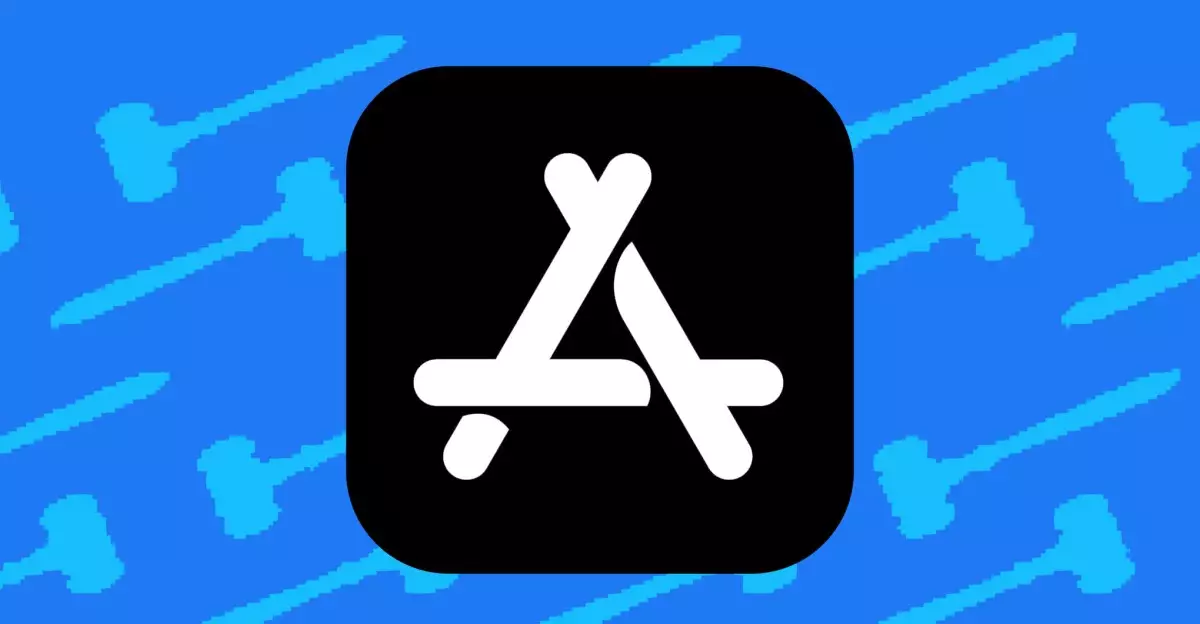The contentious legal battle between Epic Games and Apple has escalated to new heights, showcasing the friction between immense corporate power and fair competition within the tech ecosystem. Terms like “contempt of court” are not just legal jargon here; they encapsulate a profound struggle for market dominance. Epic Games, best known for its popular battle royale game Fortnite, is not backing down. As they push for a resolution with Apple, their arguments expose not only the intricacies of app approval processes but raise vital questions about fairness in digital marketplaces.
The Heart of the Matter: Legal Accusations and Corporate Maneuvering
Epic has recently accused Apple of contempt for supposedly violating a court order that aimed to restrict the tech giant from denying app approvals based solely on payment link usage. This claim comes in the wake of Judge Yvonne Gonzalez Rogers’ prior rulings that showcased a firm stance on maintaining equitable access across digital platforms. In a new court filing, Epic insists that Apple’s refusal to approve Fortnite yet again—which Epic claims adheres to all guidelines—exposes Apple’s broader strategy of retaliation against the developer’s ongoing resistance.
The essence of Epic’s argument centers around the allegation that Apple’s bureaucratic delays reflect a deeper willingness to enforce its grip over app distribution rather than genuinely evaluate compliance to guidelines. This creates a sense of apprehension among developers who fear that Apple will interpret its rules in a way that perpetuates its monopoly in the app ecosystem.
The Court’s Role and Previous Rulings
At the crux of this legal drama lies Judge Gonzalez Rogers. In prior rulings, she established that while Epic did breach its developer agreement with Apple, her recent decision in April sent a clarion call to the tech titan to modify its conduct regarding app approvals. However, she has refrained from mandating Fortnite’s immediate return to the App Store, which raises significant questions about the efficacy of her previous orders.
Gonzalez Rogers’ seeming irritation with Apple, as evidenced in her April ruling’s tone, could signal a shift in her perceptions—a fact that Epic hopes to leverage. By citing the judge’s annoyance, Epic aims to forge a narrative that might compel the court to intervene decisively this time. Should she find Apple in contempt yet again, it could radically change the dynamics of app distribution, not only for Epic but for countless other developers ensnared in Apple’s stringent ecosystem.
Broader Implications for the Tech Industry
This dispute between Epic and Apple extends beyond the immediate concerns surrounding Fortnite. The implications touch on the broader landscape of how major tech companies operate. The battle highlights the monopolistic behaviors that smaller developers endure, often forcing them into a corner. With Apple having its stringent guidelines and practices, smaller companies face a dual challenge: compliance scrutiny and the looming threat of retaliation.
The outcome could alter the rules of engagement in the app development arena. If Epic emerges victorious, it could pave the way for more equitable practices, compelling Apple and similar corporations to rethink their policies. On the other hand, a loss for Epic could reaffirm tech giants’ control over app distribution, perpetuating a cycle of compliance that stifles creativity and innovation.
The Future of Epic and Apple: A Pivotal Moment
As both sides prepare for what lies ahead, the upcoming court proceedings will be pivotal. Epic’s tenacity in maintaining its position against Apple serves not just as a platform for its interests but embodies a larger struggle representative of tech developers everywhere. The tensions that have erupted not only challenge the status quo but also invite scrutiny regarding ethical practices in platform management.
Whether or not this battle reshapes the digital market dynamics remains to be seen. Epic’s endeavor is bold, and as the legal proceedings unfold, they could either ignite new standards for fair app distribution or reinforce the current paradigm, where developers often find themselves at the mercy of tech giants. This ongoing clash may define the future blueprint of app marketplaces, with ramifications echoing across the industry for years to come.

